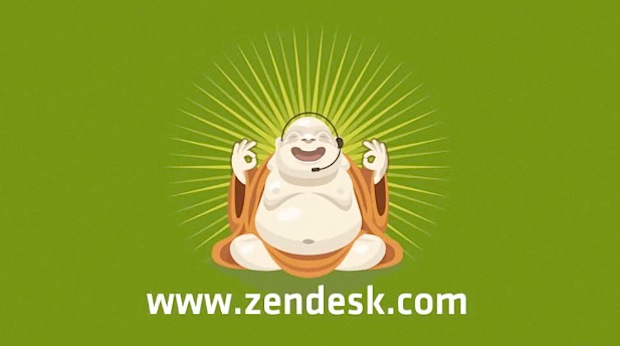“Nobody got girls on the helpdesk” says Mikkel Svane, founder of online customer service company Zendesk.
Mikkel hopes to make customer service sexy again as businesses find they have to focus on keeping clients happy.
This is a reversal of management thinking of the 1980s where, as Mikkel says, “customer service is a cost centre, outsource it, don’t spend any time on it and don’t let customers steal any of your time.”
Now the internet gives customers to tell the world about a company’s service, the days of outsourcing or disregarding support are over.

Cloud technologies are changing how software is used in business, as Mikkel found when he and his partners started Zendesk.
It became very obvious that building something that was easy to adopt, web based and integrated with email, websites. Something easy to use that didn’t clutter the customer service experience.
Something that moved from managing the customer service experience to focusing on customer service.
We built it, put it out there and customers starting coming.
A lot of these companies thought they could never implement a customer service platform. Suddenly small companies found they could compete with bigger competitors.
The appeal to investors
Having customers signing up proved to be a big advantage in Silicon Valley, no-one knew anything about a Danish company, but with local customers starting coming on board US Venture Capital firms understood what the company does.
That customer base proved powerful as Zendesk has to date raised $84 million dollars over four rounds of VC funding and is looking at a stock market float with an IPO in the next few years.
“Silicon Valley has a great tradition of building businesses.” Says Mikkel, “coming to Silicon Valley was such a big step for Zendesk, in taking it from being some little startup to being a real company that could scale very quickly.”
A question of scale
Groupon is a good example, when Mikkel and his team first met the Groupon team the group buying service was a team of four guys in Detroit. Groupon founder Andrew Mason personally signed off on the initial Zendesk subscription.
“What the hell is this company, we don’t get it.” Mikkel said at the time.
Three years later Groupon was the fastest growing company in history with thousands of support agents on their systems supporting hundreds of thousands of products.
Despite Groupon’s recent problems, Svane is proud of how Zendesk helped the group buying service with growth that no business had seen before.
“With Zendesk they got not only a beautiful, elegant system they also got the scale and the trajectory. Imagine if they’d tried to do that with an Oracle database? You’d have never been able to grow so quickly.”
On being a good internet citizen
In the past we talked about platforms – the Oracle platform, the Microsoft plaftorm – today the Internet is the platform.
“We are a good citizen on the Internet platform,” says Mikkel. “Shopify is a good citizen of the internet platform, these type of tools are easy to integrate. We are all good citizens of the Internet platform.”
Having these open system is the great power of the cloud services, they way they integrate and work together adds value to customers and doesn’t lock them into one company’s way of doing things.
The threat to incumbents
Vendor lock in has been a curse for businesses buying software. The fortunes of companies like Oracle, Microsoft and IBM have been built holding customers captive as the costs of moving to a competitor were too great.
Cloud services like Zendesk, Shopify and Xero turn this business model around which is one of the attractions to customers and it’s why huge amounts of money are moving from legacy solutions to cloud based services.
Another reason for the drift to cloud services is the reduction in complexity, the incumbent software vendors made money from the training and consulting services required to use their products.
Having simple, intuitive systems makes it easier for companies to adopt and use the new breed of cloud services.
Focusing on the business
Mikkel’s aim is to help businesses focus on their customers and products rather than worry about IT and infrastructure. In the long term it’s about helping organisations establish long term relations with their clients.
“Companies today realise that it doesn’t matter how much it matters how much I can sell to you right now, it pales into in comparison of how much I can sell you over the lifetime of our relationship. This ties into the subscription economy. It’s much more important for companies to nurture the long term lifetime relationship.”
Having a long term relationship with customers is going to be one of the keys for business success in today’s economy.
The days of transaction based businesses making easy profits from skimming a few percent off each sale are over and companies have to work on building long term relationship with customers.
Services like Zendesk, Xero and Salesforce are those helping new, fast growth companies grab these opportunities. For incumbent businesses, it’s not a time to be assuming markets are safe.

Leave a Reply